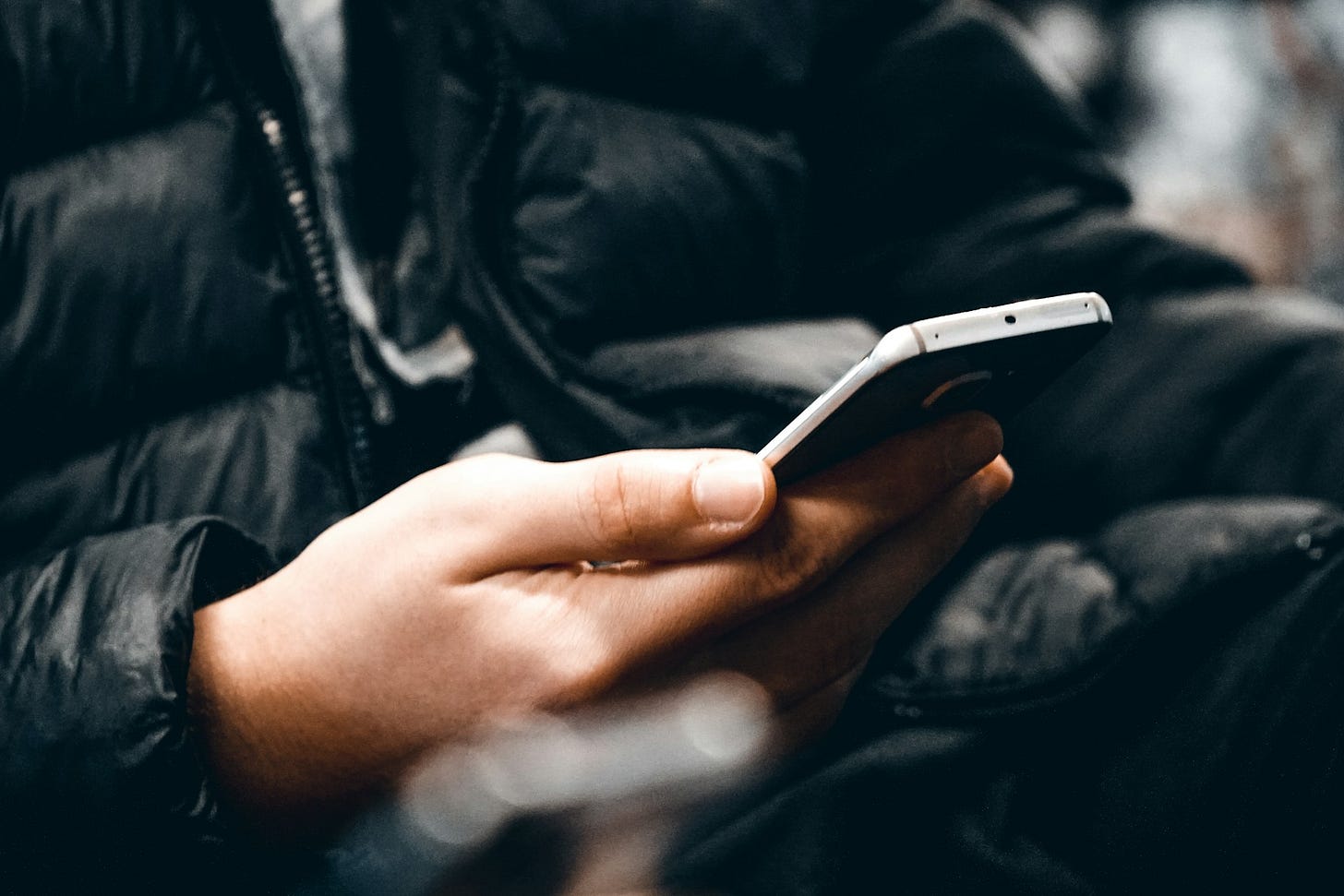Could You Speak a Little Louder?
Telling secrets so anyone can hear is asking for trouble
I overheard a whole bunch of things I had no business knowing when a man who didn’t care who knew his affairs sat next to me on a grocery store bench.
One of the big no-nos security experts preach is not to use public Wi-Fi when handling financial transactions. It’s like shouting your passwords in a crowded room. Instead, use a VPN or wait until you’re on a secure network before banking or shopping.
Let’s take it a step further. What if you’re not using Wi-Fi — but you are talking slightly above indoor voice into your cellphone on speaker?
That’s what happened next to me while I sat at one end of a 5-foot bench as my wife finished shopping.
I’m not sure when the portly man in a Philadelphia Eagles cap sat down at the other end. I say “elderly,” but he could’ve been in my age bracket.
Word for Word
Working on another Substack article, I wasn’t paying much attention until my ears perked up and my eyebrows raised. Suddenly, I started to hear everything.
Apparently, he was calling his credit card company’s customer service department. The first thing I heard — clear as day, since he was on speaker — was the woman on the other end asking him to verify his identity. That might have included the last four digits of his Social Security number. I’m not sure; I wasn’t paying close attention … yet.
“I see this account belongs to [Name Redacted].”
“That’s correct.”
“Is this Mr. [Redacted] whom I have the pleasure of speaking with?”
“Yes, it is.”
“So, what can I do for you today, Mr. [Redacted]?”
Stay a Step Ahead of Online Threats
He explained that he wanted to unlock his credit card after fraudulent activity so he could pay for his groceries.
She asked him to repeat a verification code she’d sent to his phone, which meant she’d already confirmed his number. He gave the code, and she agreed.
Then came the disputed transactions — one for Norton software, $14.95, and others she spelled out letter by letter, loud enough for anyone nearby to hear: “P as in Paul…”
They continued, discussing matters that should’ve been confidential — but weren’t. Not from a couple of feet away.
All the Data Points
She eventually put him on hold while she transferred him to the fraud department. At that point, my wife came by and said we were ready to check out.
As I walked away to stand in line, I looked back and saw him talking again and nodding his head. Then he finished and headed to checkout. Was his problem solved? Maybe. I don’t know — but really, it was none of my business to know.
Yet here’s what I knew, or could have known, from casually sitting next to a stranger on a grocery store bench:
His name, definitely
His credit card issuer
Possibly his cellphone number
Maybe his partial Social Security number
Several questionable transactions on his account
That he retired from the military
That he’s a fan of the Philadelphia Eagles
Cleaning Up Digital Privacy Never Ends
Other things I probably missed — or forgot — because I wasn’t as diligent as some other ne’er-do-wells might have been.
Keep in mind a study by cybersecurity firm NordVPN found that more than half of Americans have overheard sensitive information in public settings — and 14 percent admitted they used it.
Then consider that the Federal Trade Commission logged nearly 1.1 million reports of identity theft in 2023, most involving credit or debit card misuse.
As we went our separate ways, I thought: If Mr. [Redacted] already had problems with credit card fraud, and he keeps talking about his finances on speakerphone, he’ll soon learn that identity theft is a whole other animal.
We should wish him well.


That's really Amazing article
It made complete sense
Thanks for sharing and keep writing 💫
Just highlighting this part
It’s like shouting your passwords in a crowded room. Instead, use a VPN or wait until you’re on a secure network before banking or shopping.